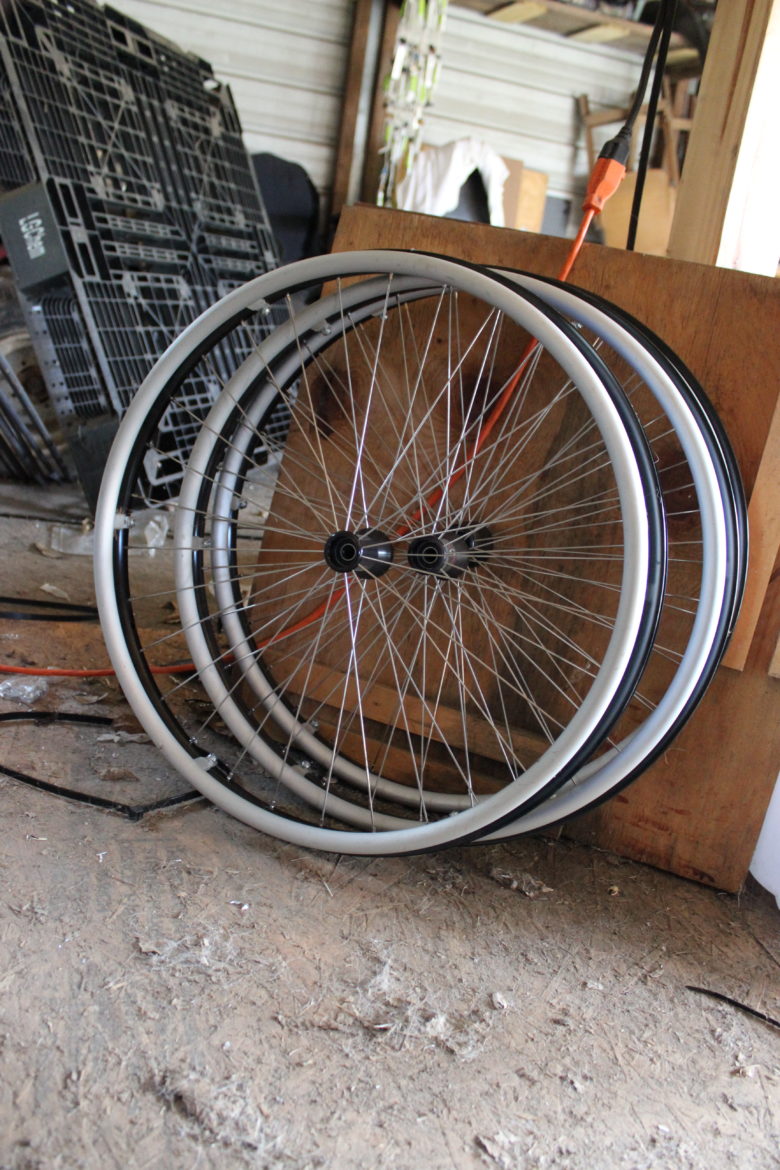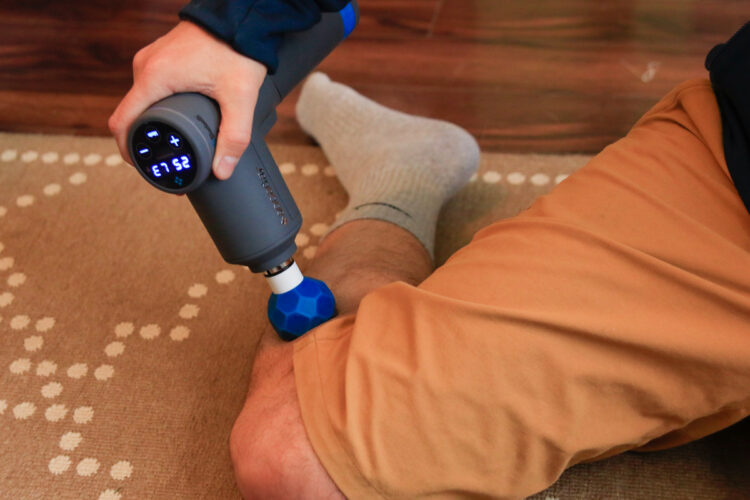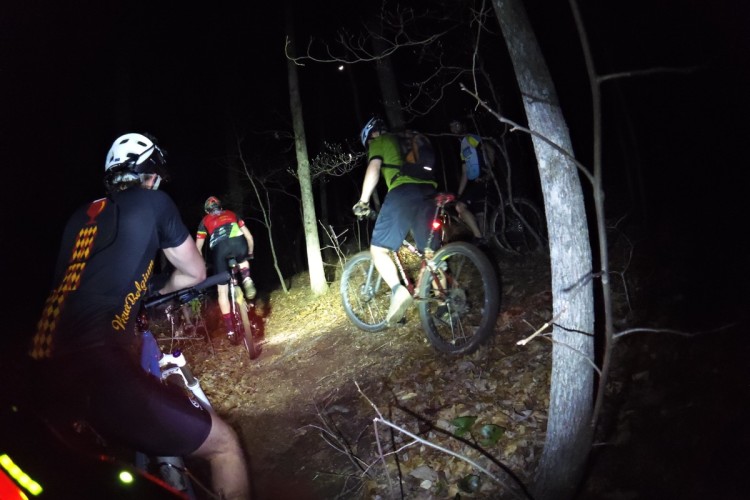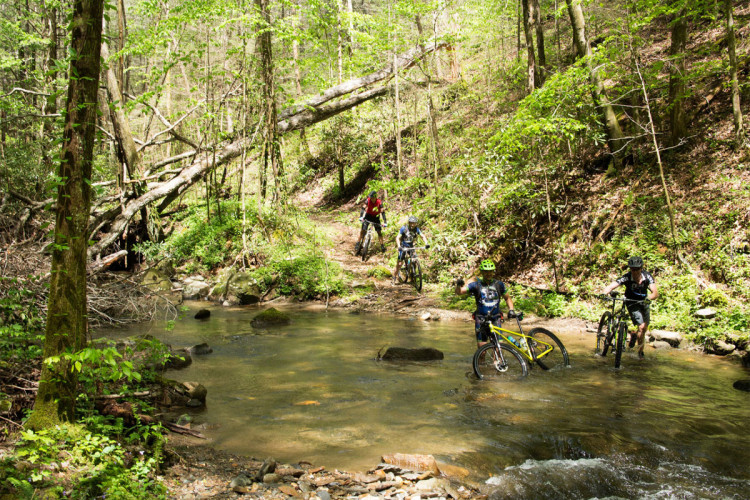
Life can change in the blink of an eye. A traumatic injury can be the end of a person’s life as they know it, but it can also be the beginning of an incredible journey they never imagined. For Ben Huntzinger, the accident that made him a paraplegic also gave him a purpose in life: to make the outdoors accessible for other individuals like himself. Through his company, Spartan Wheel Chariots, based in Ochlocknee, Georgia, Ben designs and builds custom wheelchairs made to handle natural terrain, drawing his inspiration from the sport of mountain biking. Here’s his amazing and inspiring story.
Ben has had a love of the outdoors since childhood

Ben was born and raised in Smyrna, Georgia. He fell in love with the outdoors at a young age. “I grew up in a neighborhood with some kids my age. We had a plot of woods behind our houses, and we’d go out there and play paintball. That’s how we lived.” In addition, he had family in Sylvester, Georgia who owned a cantaloupe and watermelon farm. “I’d go there in the summers and help them out by picking them. I rode four-wheelers down dirt roads, and got hooked on that lifestyle.” Ben’s parents were also active in the outdoors, and they passed that active lifestyle onto him. “Being outdoors always gets my juices flowing, and I got hooked on that feeling.”
Ben also rode bikes from a young age with the kids in his neighborhood. “We’d ride bikes all the time to the county pool. It was a way to get out of the house. The BMX world was getting big when I was growing up in the 90s, so everyone was riding them.” Ben got into mountain biking “for the love of playing in the mud.” He rode the trails near his home often when he was teenager. “My first job was at a bagel shop in Vinings, Georgia. It was right across the street from the Chattahoochee Mountain Bike Trails. When I’d get off work, I’d go over to my friend’s house, and we’d go mountain biking nearly every day. ” Ben enjoyed “the feeling of fresh air, riding over stuff, and doing jumps.”
An accident gives Ben a new mission in life

After graduating high school in 2004, Ben bounced around between jobs and school, unsure of what he wanted to do for a living. In 2009, an automobile accident changed Ben’s life. Ben flipped his truck, severing his spine at the T-4 level (chest high) instantly, and knocking him unconscious. “There’s two kinds of spinal cord injuries: a complete and an incomplete. Incomplete is when you crack your spine. Complete is when you sever it. With the incomplete, you see people start to get feeling back after a couple of weeks or months. I knew from the start mine was a complete break when the doctor showed me the x-ray. I was told that this was my new life.”
Ben was initially airlifted to Tallahassee Memorial Hospital, then sent to Shepherd Center for rehabilitation, where he went above and beyond the prescribed therapy. “I was taking 45-pound plates at nighttime and pushing them around the hospital after doing therapy during the day. I’ve always loved working out and staying strong, so that never stopped at all.” He also started quickly pushing the limits of where he could go in a wheelchair. “From the beginning, I was always rolling off the beaten path and saying I could get through this kind of stuff. It takes physical exertion to get there, and I was all about that life. I wasn’t going to let a paved surface define where I could take my chair.”
Ben credits mountain biking for his desire to push boundaries. “I think I was always intrigued with mountain biking because it was hard. It was cool to go over things like rocks because of the challenge.” He used the knowledge gained from riding to help him navigate the sidewalks of Atlanta in a wheelchair. “You had to be in a wheelie position to go over some of the old sidewalks downtown because the small front tires would get caught in cracks and eject you.” Once he had that down pat, Ben started taking his dog to the park, and going to the river. “I just feel so much more free out in nature.”
As Ben recovered, he got to work on designing a wheelchair for the life he wanted to live.
Ben got the idea in his head to make an off-road wheelchair at the very beginning of his recovery because he didn’t want his injury to dictate his life. “I’m still going to live an active lifestyle. I just want a wheelchair that can handle it.” So Ben got to work experimenting with different ideas. “First thing I ever did was take a downhill skateboard axel and put it on my footplate. Immediately I was able to get to the river and go fishing. I took suspension parts from mountain bikes and parts from skateboards. I thought it was so cool the way they articulated. I filled up notebooks for years. I would get up in the morning, drink coffee, and draw.”
While he was still at the Shepherd’s Center, Ben shared his ideas with others to see if he could get help making his dream a reality, but he didn’t get the response he’d hoped for. “I went to Georgia Tech, and to different fabricators, talking about what I was doing and what I would like to do. The people at Georgia Tech told me I was an anomaly, and it was not really a business. It wasn’t feasible for them to pursue.” Ben kept pursuing his ideas while maintaining a normal life, playing sports and working in retail, but he wasn’t getting anywhere.
Then he moved to South Georgia in 2016, and things began to change. “I was talking to an electrician and he asked me if I ever thought about making the chairs out of conduit. I didn’t know what that was.” Armed with this new knowledge, Ben bought a $100 welder, some coil springs, and conduit, and got to work. “I built at least 10 prototypes before I got the design down pat. That doesn’t count all the existing chairs I took apart and put back together.”
Once he had the right design, Ben created a company to sell his wheelchairs to the masses

Ben started to seriously market his idea in late 2018. “The very first one I posted on Facebook was after the hurricane [Michael]. It was one of my prototypes that had sat outside during the hurricane. I said hurricane-proof wheelchair, $200. After that, a buddy of mine told me to go back to school for this, and really perfect it.” Ben took his friend’s advice and enrolled in Southern Regional Technical College. “The very first day, I rolled into the Marketing Department because I knew from other people who had got into building wheelchairs that they had gone to schools and those schools had backed them.” Two semesters later, the Marketing Department received an email asking if they had any students at their school who had an invention that would qualify for the Georgia Chamber of Commerce’s InVenture Prize Competition. Ben’s invention met the criteria and he qualified for the event.
He built a few more prototypes, including the one he would take on stage for the event. Ben got second place and the People’s Choice Award. He also returned with a check for $25,000, which was a big boost for his business. “I bought 50 wheels, 100 springs, more tools, and started cranking them out on the back of my truck. The first few I sold were to people I knew privately who wanted one.” Then the website went live, and immediately people from all over the U.S. started contacting him.
Ben received a lot of help getting his business started. Spinergy wheels gave him a tremendous deal on wheels and tires, and he is quick to credit them for their help in keeping his costs low. “I got so lucky. I tell them in every email that I couldn’t do this without them.” Local companies also helped him set up his website and create the video that appears on the homepage. Ben named his company after his high school mascot, but that’s not the only reason he chose it. “I always thought Spartan was a good mentality for what this is.”

Ben has made roughly 60 chairs since May of 2019. Each chair costs around $200 to make, and takes 4-5 hours of labor to create. He then sells the chairs for $500, which is comparable to the cost of conventional chairs, and thousands of dollars cheaper than other off-road wheelchairs on the market. Ben doesn’t make the chairs to make money. In fact, he wants to get to the point where he can sell them for even less than they cost now. “I want to get to the point where I can build these on an assembly line and charge $100 for them.”

Long term, Ben wants to switch to aluminum for his frame material and hopes to have the additional equipment necessary to make the frames out of aluminum in the near future. He is also considering adding air suspension to his chairs, but the cost is prohibitive for now. He showed me a suspension system he bought from a company in California. “It’s $2,500 in the wheelchair world, and insurance won’t touch it unless you go through a lot of logistics to get it covered. I tried it out and loved it. It made it like an air ride on the back.” He would also like to add front suspension to the wheelchairs at some point in the future.
Ben is quick to make it clear that his aim isn’t to make money off the chairs. “I just want to show people that they can live a normal life. They just have to have the drive to do it.”
Ben’s life isn’t defined by his disability
When reflecting on his injury, Ben said “I think this happened to me so I could build wheelchairs. I was always very poised to do something great, but this supercedes any mission I was ever on before. This is a lot of heart and soul that I never had prior to the injury. It’s the ability to change the world with an idea.”
If you think that Ben’s injury makes his life any harder than yours or mine, he’ll correct you in a heartbeat. “We all have struggles. My life is no harder than anyone else’s. It’s just different.” He does, however, recognize that he is an inspiration to others. “I see that because of what people say to me, and I strive to be that. It’s a big motivator to live positive and continue helping people. Being an inspiration is a good way to counteract the negativity that we all have naturally.”
For those who are dealing with spinal cord injuries, Ben has a simple message for them. “Let ‘er rip. Live your life to the fullest every day. Find what gives you what you need to stay positive. Embrace who you are.”


























4 Comments
Feb 4, 2020
Feb 8, 2020
Feb 4, 2020
Feb 4, 2020